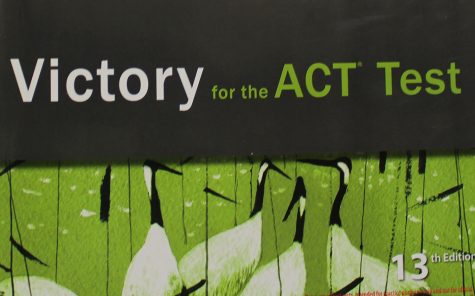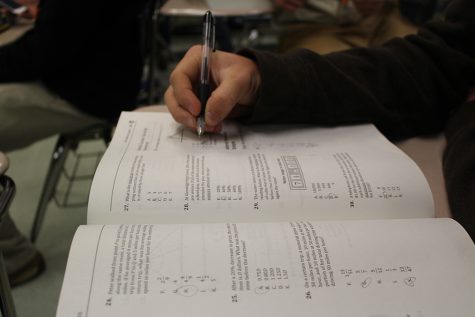ACT Prep Classes Part of Success Formula
January 9, 2018

 “If you ever get stuck on a problem, go with C.” That’s a standard approach for those doing a great deal of guessing on the ACT.
“If you ever get stuck on a problem, go with C.” That’s a standard approach for those doing a great deal of guessing on the ACT.
Many Trinity students use more reliable methods to achieve success on the ACT, a key component to gain college acceptance. Because Trinity for years has required all students to take the ACT, the school started a required ACT prep class for sophomores and juniors.
A prep class gives students an opportunity to improve their scores. The ACT prep class also helps students learn valuable skills for their futures and careers.
“It helps review skills that students might not have had in a while. It’s a good refresher,” Trinity Principal Dan Zoeller said.
In 2016, nearly two million ACT tests were taken nationwide. This is almost 27 times more than the number of test takers when the ACT first started in 1959.
Along with the ACT prep classes sophomore and junior years, practice tests taken every year play a huge factor in raising scores.
“The more you take the test, the more familiar you are with it,” Zoeller said.
Starting six years ago, along with block scheduling, ACT prep classes began, and scores have steadily gone up — approximately two to three points on average, a very significant difference.
“Consistently average ACT scores have increased and have passed state averages,” Dean of Studies Jeremy Jackson said.
Jackson coordinates all sophomore and junior ACT classes and teaches the science portion of a junior-level ACT prep class called ACT Strategies.
Much of Trinity students’ ACT success has come from the prep classes, but not all. The effort given by students has been a big factor. “The best prep is to work hard in the classroom,” Zoeller said.
Trinity junior Jacob Connors currently takes the English portion of the ACT with Mr. Gary Owens.
“I like the class because it’s useful for scholarship money,” Connors said.
Connors, who has not taken the ACT yet, plans on taking it at least twice before graduating.

